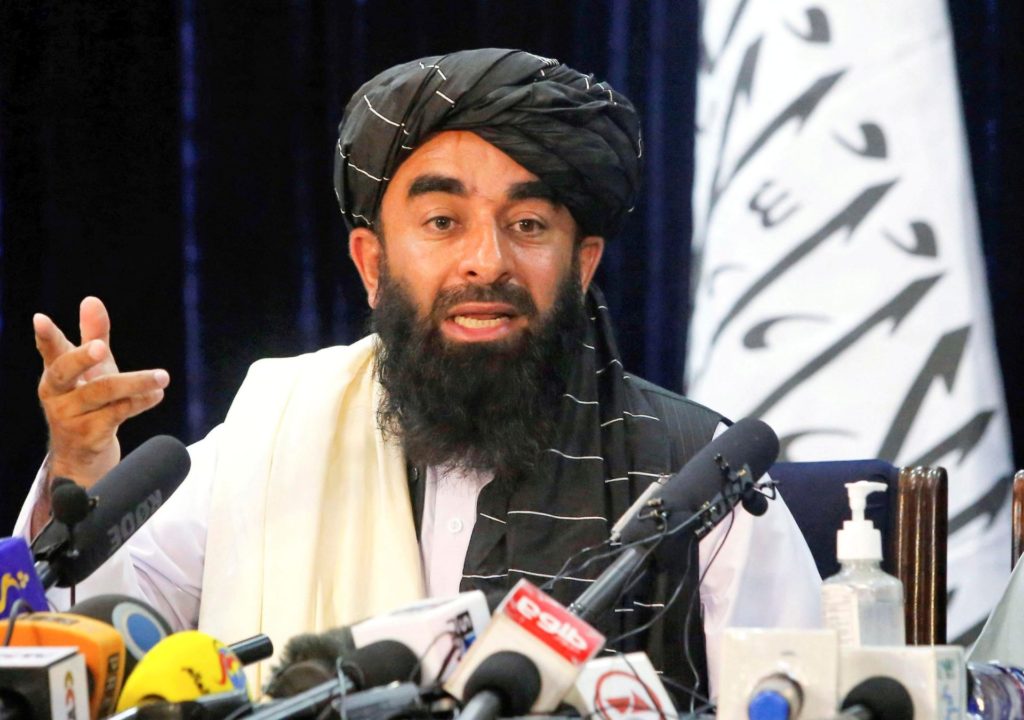Some 1,000 persons took part on Sunday in the first victory rally organised in Kabul by the Taliban, anxious to consolidate their military and civilian authority close to seven weeks after taking over in Afghanistan.
The rally was held in Kohdaman, a commune on the outskirts of the Afghan capital, Kabul, from which the Taliban had been kept at a distance during two decades of U.S. intervention.
Under the shade of tarps erected on an empty plot, the all-male crowd sat on rows of seats or on the ground. Dozens of heavily armed men stood guard outside, as Taliban fighters arrived in pick-ups to the sound of chants. “America beaten! Impossible. Impossible. But possible!” rang one of the chants aired to welcome them in a rare manifestation of music, theoretically banned by the movement.
The rally began solemnly with a procession of men in combat gear, all armed, bearing the white Taliban flag with the profession of the Islamic faith written in black and, in some cases, a rocket launcher on the shoulder.
Most of the participants in the ceremony were civilians wearing the traditional Taliban robe or, at least, the headdress. As the organisers arrived, they chanted “Takbir – Allah-u Akbar,” (God is Great!) many times. Some also launched into pro-Taliban slogans.
Some seven weeks after their lightning takeover, the new regime decreed by the Taliban, the Islamic Emirate, is still striving to assert its legitimacy with the population, as with the remainder of the world’s nations.
Thousands of Afghans have already fled the country, including a sizeable chunk of the opposition, fearing abuses by the Islamist movement. Inside Afghanistan, open opposition to the Taliban has become impossible. All demonstrations have been prohibited by the new regime since September 8 and prospective violators of the ban have been threatened with “severe legal action.”
In early September, armed Taliban dispersed demonstrations in many cities, including Kabul, Faizabad and Herat, where two persons were killed.
In Kabul, the few demonstrations by a handful of women pressing for the right to education were violently dispersed by armed militiamen.
On the other hand, the Taliban invited some 300 women, all fully veiled, to publicly demonstrate their support for the new regime at a conference organised in early September at the University of Kabul.
The current Afghan government was formed in early August. It is led by Mohammad Hassan Akhund, a former close collaborator of Taliban founder Mullah Omar, who died in 2013. All members of the government are Taliban. Almost all belong to the Pashtun ethnic group.
The new government faces the challenge of civilan management in a country suffering from economic paralysis and threatened by a severe humanitarian crisis. So far it has not been recognized by any of the world’s nations, even if Pakistan, China and Qatar have shown some signs of opening up to it.
U.S. Deputy Secretary of State Wendy Sherman is scheduled to travel to Pakistan on Thursday and Friday for a series of talks with Pakistani government officials, with whom she plans to discuss ways to put pressure on the Taliban regime to get it to respect human rights and to bring about a more “inclusive” government, she said at a press conference.
The Brussels Times

